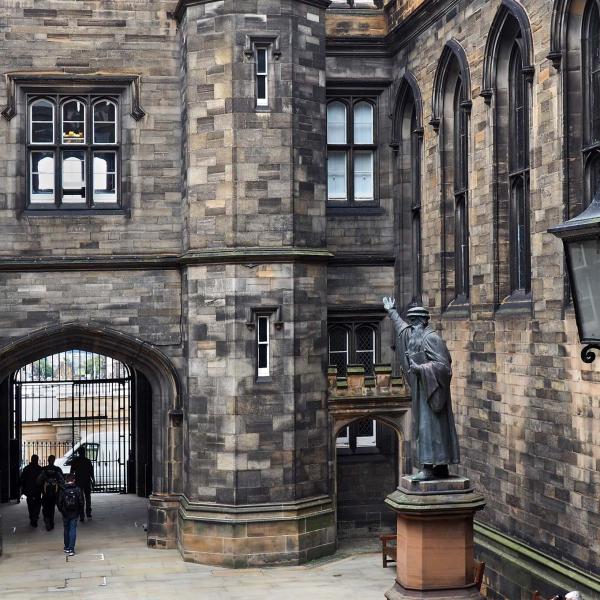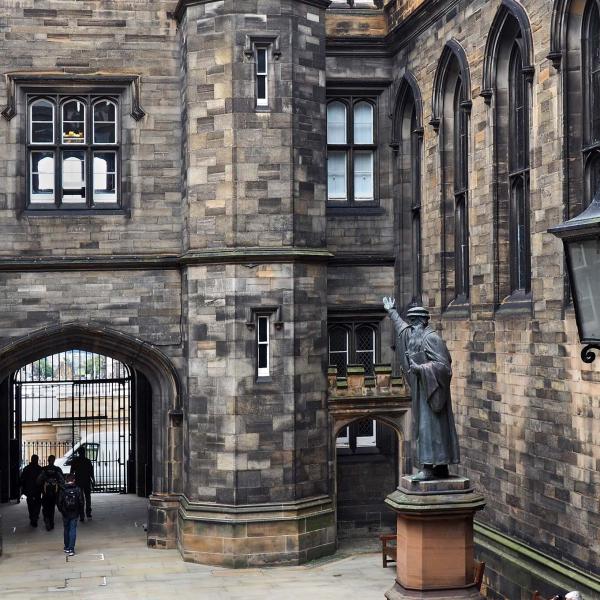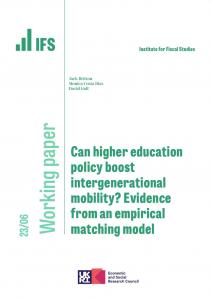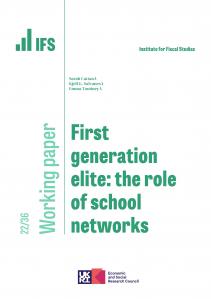The number of graduates has increased substantially over time. One in seven (14%) of those born in 1965-69 had obtained first degrees by their late 20s. That figure had more than doubled to 31% of those born ten years later. Despite this huge increase in the supply of graduates, the graduate wage premium over GCSE holders has remained the same at all ages across birth cohorts.
A new IFS briefing note published today shows how the historical increase in the graduate proportion did not lower graduates’ relative wages. However, the research also suggests that further expansion of higher education in the future could lower graduates’ relative wages.
Key facts
- In 1993, 13% of 25- to 29-year-olds were graduates. This had risen to 41% by 2015.
- Comparing across birth cohorts, the sharpest increase in the graduate proportion occurred between those born in the late 1960s and those born in the late 1970s.
- Despite this big rise in graduate numbers, the wage differential between graduates and school-leavers (those with GCSEs of at least grade C and without degrees) does not vary much across cohorts. The chart shows the ratio of the median wage of graduates to the median wage of school-leavers against age by birth cohort. The premium is largely the same across cohorts.
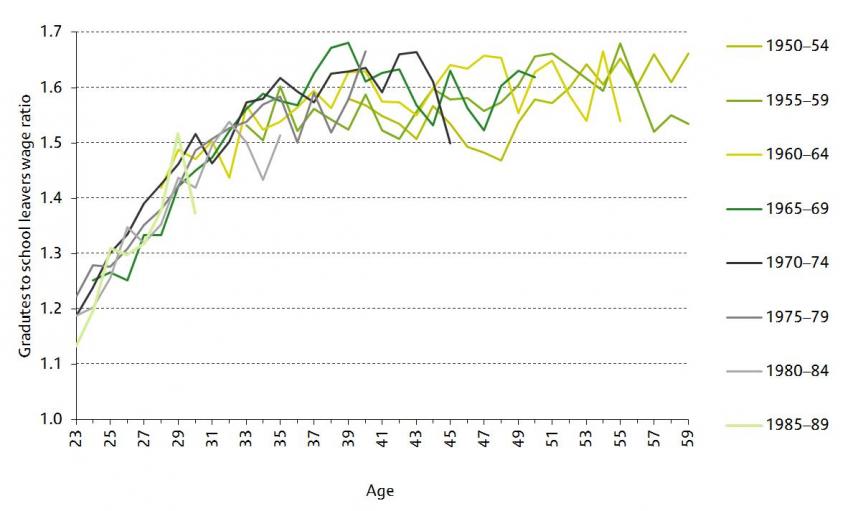
Source: Authors’ calculations from Labour Force Survey 1992-2015.
- Real wages have fallen significantly among all education groups since the Great Recession. Relative to the Consumer Price Index, the median hourly wage of 25- to 29-year-old graduates fell by nearly 20% between 2008 and 2013. The real level in 2015 is back to roughly the same level as in the mid 1990s.
- The real median wage among 25- to 29-year-old school-leavers fell by a similar percentage so that the wage differential between graduates and school-leavers has essentially stayed flat.
Our research suggests that the main reason for the lack of a decline in the graduate wage premium has been because firms have used the increased supply of highly-educated workers to switch to a different, less hierarchical and more decentralised management structure. This has had the effect of creating more graduate jobs and left the graduate wage premium unchanged.
This process cannot go on forever and there are now signs that it might be reaching a natural end, with some small falls in the wages of graduates in the private sector relative to school leavers in the most recent years. Further increases in the number of graduates could start to erode the graduate wage premium in the future. This does not, however, imply that getting a degree will not be worth it any more. It’s just that the gain might be smaller in the future than it is now.
Wenchao Jin, PhD Scholar at the IFS, says "the fact that the dramatic increase in the number of graduates in the early 90s did not have any discernible negative impact on graduates' wages relative to school-leavers is remarkable. Our research suggests the increasing supply of graduates induced firms to decentralise more decision-making and create more graduate jobs. As most firms have now made such a change, we believe future increases in graduate numbers could reduce the graduate wage premium in the future."
ENDS
Notes to Editors:
1. For embargoed copies of the briefing note or other queries, contact: Emma Hyman at IFS: 020 7291 4800 or 07730 667013, [email protected]
2. The briefing note 'The puzzle of graduate wages', by Richard Blundell, David Green and Wenchao Jin, will be published at http://www.ifs.org.uk/publications/8409.
3. The full IFS working paper on which the briefing note is based, 'The UK wage premium puzzle: how did a large increase in university graduates leave the education premium unchanged?', by Richard Blundell, David Green and Wenchao Jin, can be found at http://www.ifs.org.uk/publications/8322







